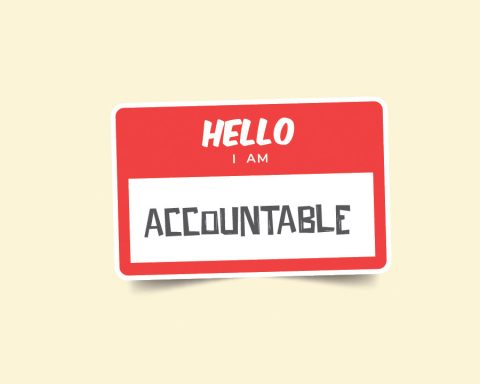For the merriest time of year, Christmas can sometimes create a perfect storm of stress. The combination of too much spending, over-indulging, the proximity to (or absence of) family members, seasonal weather changes and many other factors can become overwhelming. Furthermore, the year of much uncertainty caused by the COVID-19 pandemic and anxieties about our health, finances and futures may cast a shadow over the festive season.
However, it is important to keep the spirit of the festive Christmas season and focus on spending quality time with families and friends andnurturing ourselves.
Some top tips for a safe and healthy season:
Disconnect to reconnect
If you are off work, switch off from work!Even if you are used to working from home and accessing your work at any time, avoid the temptation of reaching for your laptop during your annual leave.
Reaching for our phones is almost compulsive; but doing absolutely nothing at all is actually good for our brains. Research shows that when we are ‘unfocused’ (i.e.daydreaming or doodling) our brain activity increases, allowing us to process thoughts and memories.
Avoid long periods of watching TV or engagement with social media. Short periods can provide entertainment and connect you to a wider community, but too much time is seen to interrupt sleep and affect mood.
Embrace the quiet moments and be present-stop looking for the next thing to do!
Hydrate
Mulled wines, festive cocktails, any kind of alcohol, can cause chronic dehydration. Drinking tea/ coffee to access will have the same effect.Try to get into the habit of drinking a glass of water when you wake up every morning before doing anything else. A cup of warm water with a dash of lemon and honey is an option. It is good to drink a glass of water in between alcoholic drinks too.
The aim is drink at least six to eight glasses of water a day.
Give your digestive system a break; consume consciously!
Digestion starts in the brain. Seeing/ smelling food causes the release of enzymes that aid digestion. Chewing food properly allows you to savour the taste whilst reducing your stomach’s workload. Humans cannot effectively digest foods when in a state of stress, our bodies cannot absorb nutrients as efficiently; often, as a result, we consume empty calories that then cause us to crave moreenergy dense foods.
If you find you like to indulge in ‘junk’ foods, be mindful of your digestive system!Fried and processed foods containing lots of sugar and ‘bad’ fats are the worst offenders for cell damage. Eat natural foods as far as possible (i.e. fresh fruits and veg, wholegrains…).
Try to plan your meals bearing this in mind and make sure to avoid late night snacking; also allowing for a 12-hour break from eating/drinking to facilitate digestion and cell repair.
Put your cutlery down between mouthfuls; this will encourage you to slow down.
Move more
Your lymphatic system is your body’s waste removal system; it requires movement to eliminate the toxins your body is constantly processing. Exercise is vital to shift these toxins.
Dancing, sprinting, power walking have manybenefits, as do many other forms of exercise. Other ways to move your lymphatic system include dry skin brushing, massage and relaxing in a bath.
Less doing and more being!
Take the time to spend 10 minutes a day to nurture yourself or just be on your own, simply enjoying being rather than doing. Scheduling a few minutes for yourself daily will prompt the release of calming hormones like serotonin and help you cope with festive frictions.
Connecting with nature, perhaps on a walk, is another way to reduce depression/ anxiety and lower blood pressure.
Try Box Breathing to create a sense of Calm – breath in for 4, hold for 4, breath out for 4, hold for 4. Repeat 5 -10 times.
Practice daily gratitude
Studies show that writing down things you are grateful for every day increases happiness levels, decreases stress and even boosts the immune system!
Leave a notepad by your bed and jot down three different things every day that you are grateful for – aim for 21 consistent days and see how you feel…
Don’t overspend
Overspending is common at Christmas, and it is often a result of external pressure from family, social media, friends and even children!Financial problems can have a huge impact on health, wellbeing and personal relationships.
Some practical tips for avoiding overspending at Christmas:
• Set a budget.
• Make a list of people you want to buy gifts for with ideas for gifts (this will help prevent impulse purchases).
• Shop around for deals.
• Resist the urge to borrow money.
• Make some gifts instead of buying them all.
• Ask friends and family to buy you charitable gifts as far as possible
• Talk to your children/family about the reality of money and the pandemic situation.
The most valuable thing anyone can ever give is their time.Doing something for a friend or stranger, volunteering, making a present, completing random acts of kindness or merely taking the time to genuinely thank someone will strengthen relationships and create positive experiences.
Think before you light
A Public Health Perspective on Fireworks
Fireworks are a beautiful way to mark celebratory events – National Day and New Year’s Eve are just two occasions we may enjoy a visual treat. However, it is important to be mindful of the potential health impacts of such displays, particularly if you are conducting your own.
Fireworks and bonfires can increase circulating particulate matter (also known as particle pollution) that affects air quality, visibility and health, during and after the events.
Inhalation of particulate matter and smoke can lead to a worsening of several health conditions, including:
•
respiratory illnesses, such as colds, allergies or coughs, asthma, COPD, pneumonia, laryngitis etc.
• cardiovascular disease
• eye related problems
• headaches
(Pregnant women, children, elderly people and those with pre-existing health conditions are particularly vulnerable to health effects associated with exposure to firework related emissions).
Metals such as barium and aluminium used to give fireworks colour can damage human and animal cells; others like lead, titanium, strontium, and copper commonly found in fireworks are much more toxic than the pollutants we breathe every day.
Keep a safe distance from any firework zones (10 – 20 metres recommended)
Some fireworks can be loud and can exceed 140 decibels (studies show that noise above 85 decibels can damage hearing). Increase in the sound levels can lead to restlessness, temporary or permanent hearing loss, high blood pressure, mood disruptions and sleep disturbance.
Burns are reportedly the most common firework injury with head/neck, hands, fingers, arms, and legs being common sites of injury. Injuries affecting the eyes, including the presence of foreign bodies are also common. The types of fireworks that cause the most injuries are firecrackers, sparklers and bottle rockets. Sparklers burn at temperatures of about 2,000 degrees – hot enough to melt some metals- young children often suffer injuries from sparklers. It is therefore crucial to ensure to keep a safe distance immediately after lighting fireworks.
Always have an adult supervise firework activities.
Loud noises and sudden flashes of bright light from fireworks easily frighten animals. Pets are particularly vulnerable. Common reactions in dogs include freezing or paralysis, uncontrolled attempts to escape and hide, and tremors. Other more intense signs may also be present, such as salivation, tachycardia, intense vocalizations, urination or defecation, increased activity, hyper-alertness and gastrointestinal disorders.
Birds are also affected; the noise and pollution can lead to abandonment of nests or even whole colonies.










